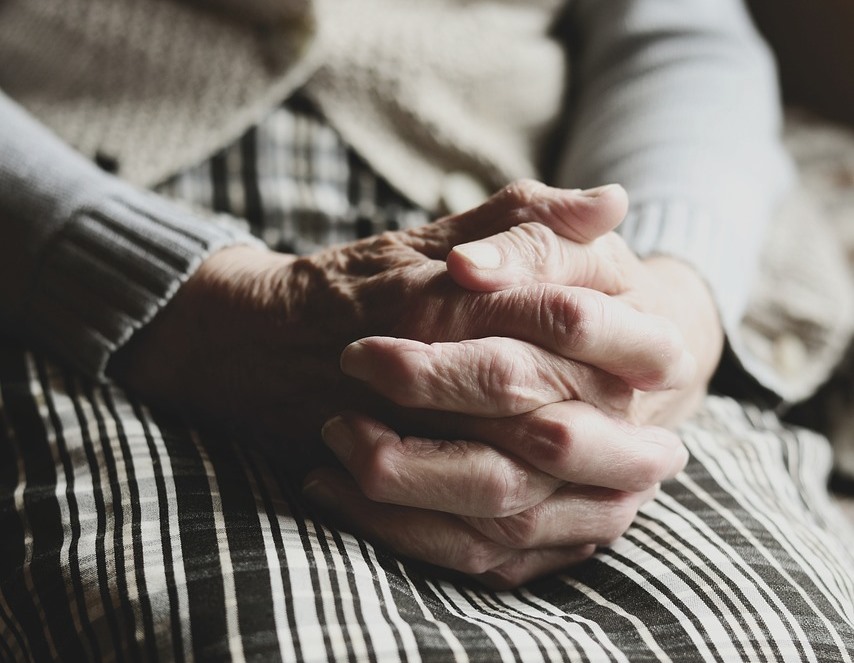
Seniors’ health improving, but rates of depression, anxiety rising: U of M study
Manitoba seniors are staying physically healthy longer, but their mental health may be worsening, a massive study of health data by the Manitoba Centre for Health Policy (MCHP) at the University of Manitoba has found.
The study of more than 200,000 Manitoba seniors compared two periods of five years: 2005-2010 and 2010-2015. It found that seniors are living longer, experiencing fewer heart attacks or strokes, and staying longer in the community – that is, in a private home or retirement residence, not an institution such as a personal care home.
“On average, at age 65, men can expect to live outside an institution until age 82, and women until age 85,” said the study’s lead author, Dr. Dan Chateau, assistant professor of community health sciences at the Max Rady College of Medicine in the Rady Faculty of Health Sciences.
However, about one-third of seniors in the study were diagnosed with a mood or anxiety disorder (including depression) during the 10-year period, and the rate increased.
“The prevalence of mood and anxiety disorders increased significantly,” Chateau noted, “except in the Northern Health Region, where it was significantly lower than in the rest of Manitoba and didn’t change.
“It may be that the rate isn’t truly increasing, and what’s changing is that with less stigma surrounding mental health, more seniors are seeking help. It may also be that with seniors staying longer in their own homes, there is a growing prevalence of isolation and loneliness that fuels anxiety and depression.”
The study, The Health Status of Community-Dwelling Older Adults in Manitoba, used the Manitoba Population Research Data Repository at MCHP to examine the de-identified (anonymous) health records of seniors in three age groups: 65-74, 75-84 and 85-plus.
It also looked at seniors’ self-reported health status according to the Canadian Community Health Survey. One finding from that data was that older Manitobans’ feelings of stress increased over the study period.
The project by Chateau’s team, documented in a 262-page report, is the first to paint a comprehensive picture of the health status and health-care use of community-dwelling Manitoba seniors. Researchers analyzed more than 50 health indicators, ranging from how often seniors visit specialists to their rates of hip replacement surgeries.
The findings will help health-care planners meet the needs of seniors – a population that is swelling. By the year 2036, the study says, there are expected to be more than 300,000 seniors in the province, making up 18.4 per cent of the population.
The researchers used postal codes to compare seniors’ health according to income. “Income is a major social determinant of health,” Chateau said. “It’s an important lens through which to assess differences in health status and plan health-care delivery.”
The lower a senior’s income, the more likely they were to be hospitalized. Lower-income Manitoba seniors had a higher prevalence of coronary artery disease, diabetes, heart attack, stroke and hip fracture, and higher rates of mental health conditions.
Lower-income seniors were dispensed, on average, a greater number of prescription drugs. And the lower a senior’s income, the less likely they were to obtain a flu shot, although the shots are free.
Other notable findings of the study include:
- On average, a Manitoban who is free of major chronic disease at age 65 can expect to be diagnosed with a serious disease such as cancer, dementia, diabetes, end-stage kidney disease, heart disease, heart attack or stroke at about age 75 (if male), or age 77 (if female).
- The rate of family doctor visits increased for all three age groups of seniors. Although the increases were small, they represent almost 50,000 more visits per year in the 2010-2015 period, compared to the earlier period. That increase in visits represents about 10 additional full-time family doctors.
- While hospitalization rates declined overall, the average number of days spent in hospital increased for the 85-plus age group.
- Fewer seniors are getting an annual flu shot. The rates of both flu and pneumococcal vaccinations declined significantly over the study period. In the year 2015, only about half of people aged 65-74 obtained a flu shot – a significant drop from 2010.
- Half of community-dwelling Manitobans over age 85 have dementia. The prevalence of dementia increased over the study period for the two oldest age groups. This may be because more seniors are staying in the community with dementia, rather than moving into personal care homes.
- There was a significant drop in the number of seniors being dispensed drugs such as long-acting benzodiazepines (for example, Valium), which are not recommended for older adults because they increase the risk of adverse events such as falls. This is good news, Chateau said, but there is still room for improvement.
The full study is available online.






